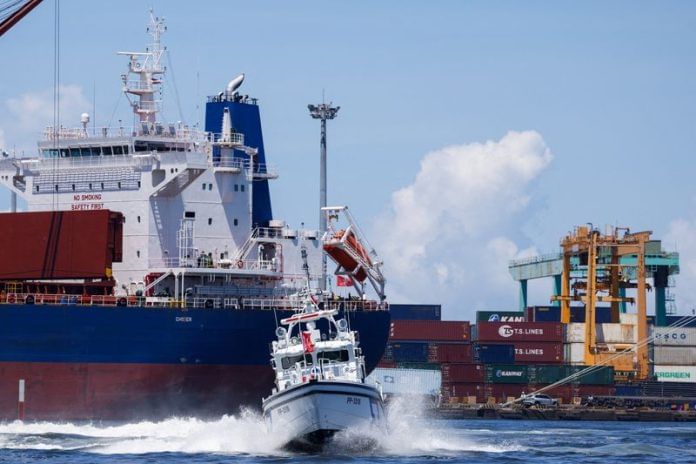By Yimou Lee and Ben Blanchard
TAIPEI (Reuters) -Taiwan opened its largest arms fair on Thursday, with about double its previous number of exhibitors, as firms flock for a slice of the island’s increased defence spending at a time when it is looking to expand international military cooperation.
Democratically-governed Taiwan is racing to bolster its armed forces as China, which views the island as its own territory, steps up military pressure by staging war games and regularly sending warplanes and warships into nearby areas.
Taiwan, whose government rejects Beijing’s territorial claims, has set a goal of spending 5% of its GDP on defence by 2030, up from 3.3% for next year.
The Taipei Aerospace and Defence Technology Exhibition features 490 exhibitors at 1,500 booths, up from 275 exhibitors at about 960 booths in 2023, when it was last held.
Karin Lang, deputy director of the American Institute in Taiwan, the de facto U.S. embassy, told the opening ceremony that the U.S. pavilion had doubled in size since two years ago, with more than 40 companies this time around.
“When American and Taiwan companies collaborate, they create solutions that enhance not just bilateral interests but contribute to broader regional security and prosperity,” she said to an audience that included Taiwan Defence Minister Wellington Koo.
“Supply chain vulnerabilities, technological competition, evolving security threats require us to work even more closely with trusted partners.”
The United States is Taiwan’s most important arms supplier, despite the lack of formal diplomatic ties, and Taiwan has been keen not only to buy more but also to jointly build weapons.
On Wednesday, Taiwan unveiled its first missile jointly made with a U.S. company, marking a major step in their fast-growing defence cooperation.
The military-owned National Chung-Shan Institute of Science and Technology (NCSIST) said it would also sign a series of deals with U.S and Canadian companies for weapons such as anti-drone rockets from Canada’s AirShare and underwater surveillance drones from U.S. firm Anduril.
“Taiwan will gain the most solid support from friendly partners in strengthening independent defence capabilities and improving international cooperation,” the institute said in a statement.
Other companies at the exhibition include Lockheed Martin, which makes the F-16 fighter jet, the mainstay of Taiwan’s air force, and Northrop Grumman.
Taiwan’s increased defence spending in coming years was likely to lead to minimum procurement between $50 billion and $60 billion, Rupert Hammond-Chambers, president of the US-Taiwan Business Council, said before the show opened.
“About a third … will go domestic – sub-systems of that will go international – and then about two-thirds will go international, most of which will go to the United States, but not all,” he said in Taipei this week.
(Reporting by Yimou Lee and Ben Blanchard; Editing by Clarence Fernandez)
Disclaimer: This report is auto generated from the Reuters news service. ThePrint holds no responsibility for its content.




